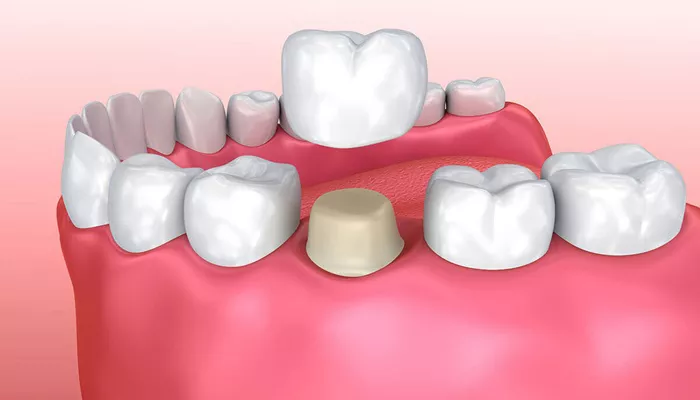Dental implants are an excellent solution for replacing missing teeth, providing a durable and natural-looking alternative to dentures and bridges. However, as successful as dental implants are, there are rare instances when they may fall out.
Whether due to improper care, complications, or other factors, it’s crucial to know what steps to take if this happens. This article will guide you through the necessary actions, ensuring that you are well-informed and prepared to handle the situation.
Understanding Dental Implants And Why They May Fall Out
A dental implant is a titanium post surgically inserted into the jawbone, acting as a root for a replacement tooth. Over time, the bone fuses with the implant in a process called osseointegration, creating a strong foundation for the artificial tooth.
Dental implants are known for their durability, with success rates exceeding 95% in healthy patients. However, complications can occur, leading to implant failure.
SEE ALSO: What Is The Strongest Dental Implant?
Reasons for Dental Implant Failure
While dental implants are designed to be permanent, several factors can cause them to become loose or fall out:
Infection (Peri-Implantitis): This is a gum infection that affects the surrounding tissues of the implant, leading to bone loss and, eventually, implant failure.
Insufficient Bone Support: If the jawbone does not adequately fuse with the implant, it may become loose and fall out.
Overloading: Excessive force on the implant due to teeth grinding (bruxism) or an unbalanced bite can cause it to loosen.
Poor Oral Hygiene: Neglecting oral care can lead to gum disease, which may affect the stability of the implant.
Smoking: Smoking can hinder the healing process and increase the risk of implant failure.
Medical Conditions: Certain medical conditions, such as uncontrolled diabetes or autoimmune diseases, can interfere with the healing process and lead to implant failure.
Immediate Steps to Take When A Dental Implant Falls Out
1. Remain Calm and Preserve the Implant
If your dental implant falls out, it’s important to stay calm. While it’s a concerning situation, acting quickly and following the right steps can improve the chances of a successful resolution. The first thing you should do is carefully retrieve the implant. If it has fallen into your mouth, avoid swallowing it. Rinse the implant with clean water, but do not scrub it or use any cleaning agents.
2. Contact Your Dentist Immediately
Your next step should be to contact your dentist or oral surgeon as soon as possible. Explain the situation and schedule an emergency appointment. It’s essential to be seen by a dental professional promptly, as the longer you wait, the higher the risk of infection or further complications.
3. Avoid Self-Treatment
It might be tempting to try and reinsert the implant yourself, but this is not recommended. Reinserting the implant without professional guidance can cause damage to the surrounding tissues and make it more difficult for your dentist to fix the problem.
What to Expect During Your Emergency Dental Visit
1. Examination and Diagnosis
Upon arriving at the dental office, your dentist will perform a thorough examination of the affected area. This may include taking X-rays to assess the condition of the bone and surrounding tissues. The dentist will determine whether the implant fell out entirely or if just the crown (the visible part of the tooth) detached.
2. Treatment Options Based on the Cause
The treatment for a fallen dental implant will depend on the underlying cause of the failure:
If Peri-Implantitis Is the Cause: The dentist will clean the area to remove any infection. In some cases, additional procedures, such as bone grafting, may be necessary to restore the bone structure before considering a new implant.
If Insufficient Bone Support Is the Cause: The dentist may recommend bone grafting to build up the jawbone before attempting to place a new implant.
If the Implant Was Overloaded: Adjustments to your bite or the use of a night guard may be recommended to prevent excessive force on the implant. A new implant may be placed once the issue is resolved.
If the Implant Itself Is Defective: In rare cases, the implant may be faulty. The dentist will remove the defective implant and replace it with a new one.
Preventing Future Implant Failures
Practice Excellent Oral Hygiene
Maintaining proper oral hygiene is crucial for the long-term success of your dental implants. Brush twice a day, floss daily, and use an antimicrobial mouthwash to keep your gums healthy and free from infection.
Regular Dental Check-Ups
Schedule regular check-ups with your dentist, typically every six months. These visits allow your dentist to monitor the health of your gums and the stability of your implants, addressing any potential issues before they escalate.
Manage Medical Conditions
If you have a medical condition such as diabetes, work with your healthcare provider to keep it under control. Proper management of your overall health can significantly reduce the risk of implant failure.
Avoid Smoking
Smoking can compromise the healing process and increase the likelihood of implant failure. If you smoke, consider quitting to improve your oral and overall health.
Conclusion
Dental implants are a reliable and long-lasting solution for replacing missing teeth, but like any medical procedure, they are not without risks. If your dental implant falls out, it’s important to act quickly by preserving the implant, contacting your dentist, and avoiding self-treatment. With prompt and appropriate care, many cases of implant failure can be resolved successfully, allowing you to continue enjoying the benefits of your dental implants. Remember, prevention is key—maintain excellent oral hygiene, attend regular dental check-ups, and manage any medical conditions to minimize the risk of future implant failures.

